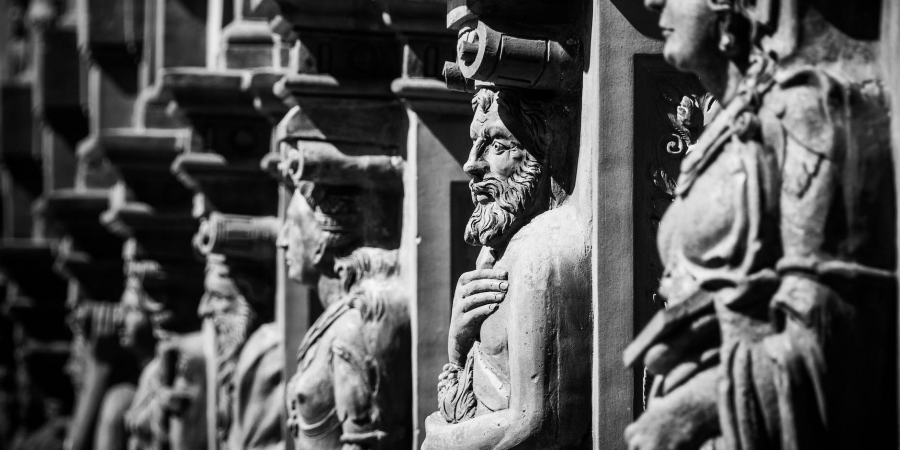

Ashoka the Great, also known as Ashok Samrat, stands as one of the most revered and influential figures in Indian history. Born in 304 BCE, Ashoka ascended to the Mauryan throne around 268 BCE. His reign marked a pivotal era in the Indian subcontinent, characterized by profound political, social, and cultural transformations. Ashoka's greatness lies not only in his military conquests but, more significantly, in his remarkable transformation from a ruthless conqueror to a compassionate and enlightened ruler.
Ashoka's early years were marked by military prowess, as he expanded the Mauryan Empire through brutal campaigns. The pivotal moment in his life occurred during the Kalinga War around 261 BCE, a brutal conflict that left hundreds of thousands dead. Witnessing the devastation and human suffering of the war profoundly impacted Ashoka, leading to a profound change of heart. This event served as the catalyst for his conversion to Buddhism and his commitment to the principles of non-violence, compassion, and moral conduct.
One of Ashoka's most enduring legacies is his propagation of Buddhism. He not only embraced the teachings of Buddha but actively promoted them throughout his vast empire. Ashoka's commitment to Buddhism was evident in the establishment of the famous Edicts of Ashoka, inscriptions carved on rocks and pillars across his empire. These edicts conveyed his moral and ethical principles, emphasizing tolerance, respect for all religions, and the pursuit of a righteous life.
Ashoka's commitment to a just and compassionate rule extended to his governance. He implemented a series of administrative reforms that focused on the welfare of his subjects. Ashoka's emphasis on the "Dhamma," a term that encompasses moral and righteous conduct, influenced the legal system and governance policies. He promoted social justice, supported public welfare projects, and instituted measures to ensure the well-being of his people.
The greatness of Ashoka is further underscored by his role in spreading Buddhism beyond the Indian subcontinent. He sent emissaries to various regions, fostering diplomatic and cultural exchanges. Ashoka's commitment to non-violence and moral conduct became a hallmark of his foreign policy, influencing interactions with neighboring states and establishing a legacy of peaceful coexistence.
The Mauryan Empire under Ashoka's rule became a beacon of moral governance and religious tolerance. His commitment to the principles of Dhamma left an indelible mark on the Indian subcontinent and beyond. Ashoka's transformation from a ruthless conqueror to a compassionate and enlightened ruler showcases the immense power of personal change and the enduring impact of a leader who prioritizes the well-being of their people over mere conquest. In the annals of history, Ashoka the Great stands as a symbol of moral governance, compassion, and the enduring power of ethical leadersh
